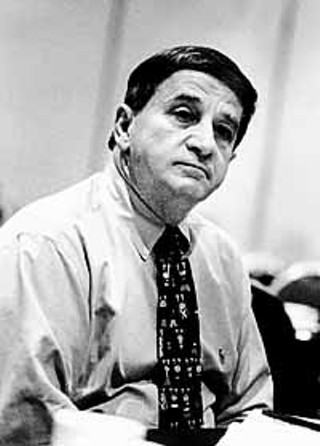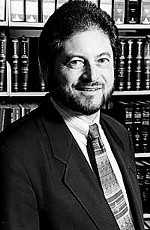Naked City
Declining Health?
By Kevin Fullerton, Fri., Feb. 16, 2001

The establishment of a statewide teachers' health insurance plan promises to be the Legislature's flagship education piece this session, and that may be unfortunate for local school districts. Not that anyone begrudges health coverage for teachers, but with the state's share of public education spending at an all-time low, school districts are wary of another expensive state mandate -- especially when the current school finance system is on the brink of collapse.
Last week, at the annual "Educational Dialogue" event sponsored by the Texas Coalition of Urban School Districts and hosted by the Austin Independent School District, the leaders of the state's urban school districts got updates on teacher health insurance and discussed other issues that should give them plenty to worry over through the next biennium: teacher shortages, deteriorating buildings, lack of Internet training, and a proposal that would require schools to automatically enroll students in college-prep courses. Roughly 200 districts in the state -- about one in five -- have already set their tax rates at the maximum allowed under state law, meaning they can't raise any more money to keep up with increasing demands.
Urban districts fear that a state health insurance plan may wind up costing them more and delivering less than the coverage districts already offer, says AISD superintendent Pat Forgione. At least one teacher health insurance bill, Harryette Ehrhardt's HB 12, does propose that the state pay 100% of the premiums, but other bills call for local districts to kick in as much as 65% of the cost or get no state aid at all (the latter idea courtesy of Dripping Springs wunderkind Rick Green). Given the budgetary hand-wringing already in process, it's questionable whether state lawmakers will have the stomach to pay the full $4 billion price tag for a health insurance plan, even if they decide to tap the Permanent School Fund.
School districts also feel some trepidation about a plan from the Higher Education Coordinating Board that would make enrollment in the "recommended," or college-track, curriculum the default setting for junior high students. That plan includes a proposal to make completion of the recommended curriculum a standard for college entry by the year 2008. Schools across the state would have to hire thousands of additional teachers -- especially in algebra and science -- to accommodate that plan.
But school administrators may have derived some comfort from the participation of higher education officials at this year's conference, including UT President Larry Faulkner and UT System Chancellor Dan Burck. The collaboration between higher and public ed officials is a sign of increasing partnership between the formerly estranged communities, says Forgione, who's also the current president of the urban schools coalition. "At this moment, higher education is ready to enter into a mature relationship," he says, "but we in the K-12 area have to step up to the plate and be clear about our needs."
Higher ed leaders made it clear in their conference presentations that they're willing to intensify their recruitment and training of public school teachers and partner with schools to integrate the Internet and other technologies into classroom instruction. At the very least, said AISD governmental affairs director David Duty after the conference, higher and public education officials are playing more as a team this legislative session, recognizing that the enormity of the state's education crisis outweighs their usual turf battles.
A handful of state legislators, including Senate Education Committee Chairman Teel Bivins, R-Amarillo, showed up to report on the status of educational issues at the Legislature. Bivins had two significant promises for educators: one to extend scholarships to more college students pursuing careers as public school teachers, and the other to form a interim committee to overhaul the state's school finance system at the end of this session. By 2003, Bivins' office reports, as many as half the state's school districts could reach the $1.50 cap placed on their property tax levies by the Texas Constitution, which Bivins says will place public education funding at a "crisis level."
Got something to say on the subject? Send a letter to the editor.








